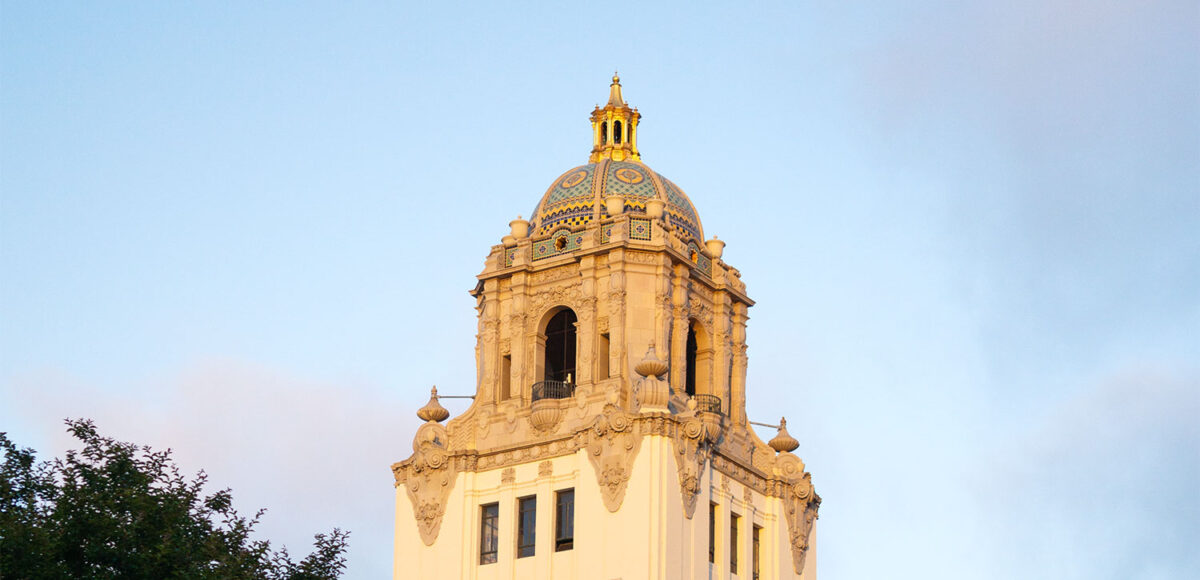The Beverly Hills Planning Commission’s Jan. 14 meeting agenda included a one-year review of Spring Place operations, potential updates to the 1131 Tower Road project and a study session on synthetic turf in residential front yards.
Chair Terri Kaplan introduced the first item on the agenda, an informational report on the one-year review of Spring Place operations. Spring Place is a co-working office and private membership club that operates within the offices and on the rooftop of the commercial buildings located at 9800 Wilshire Blvd. and 121 Spalding Drive. Issues were raised over Spring Place’s violation of regulations regarding rooftop use. In October 2024, they held a rooftop event but failed to notify the director of community development ahead of time. However, attorney Tom Levyn representing landlord The Gores Group informed the commission that Spring Place’s relationship with 9800 Wilshire and 121 Spalding has now been terminated. As a result, a new private club called Good City Studio will be opened in the same location. Levyn confirmed that Good City Studio will abide by all conditions set by the Planning Commission and previous resolutions.
The commission then discussed the proposed construction of a new two-story, single-family residential building with a subterranean basement and attached accessory dwelling unit (ADU) at 1131 Tower Road. The project has requested five Hillside R-1 permits. Commissioner Gary Ross raised concerns about the specifics of the permit requests, including the rationale behind certain stipulations and the wider impact on the neighborhood. Ross also raised concerns about the need for clarifications in the construction’s proposed traffic management plan. The commissioners requested further clarification on these matters and adjourned the discussion with no further action taken on this matter.
In a continuation of the Dec. 12 meeting, the commission embarked on a study session to discuss the direction of potential changes to synthetic turf regulations for residential front yards following recent state law updates. Until recently, state law prohibited cities from banning or excessively restricting synthetic turf. Under current regulations, synthetic turf is permitted with a permit on single and multifamily lots in Beverly Hills and can cover no more than 40% of front or street-side yards. However, Senate Bill 676 (Allen) became effective in 2024, and has thus restored local control by allowing cities to regulate or outright ban synthetic turf to address environmental concerns and public health.
The commission began by hearing public comments, which tended to be in favor of keeping current synthetic turf regulations as they are, and allowing homeowners to decide individually whether to install synthetic turf. Reasons put forward for this decision included ease of maintenance compared to grass, cost efficiency, water conservation arguments and aesthetic reasons.
Commissioner Lou Milkowski asked public works staff how many houses have had permits approved for synthetic turf installation. Associate Planner Patrick Achis confirmed that 43 permits have been issued.
Vice Chair Jeff Wolfe, who has a background in public works, asked public works staff about the effects of synthetic turf on stormwater management. Representatives from public works mentioned the risk of microplastics from synthetic turf going into the urban runoff and polluting the watershed in Santa Monica Bay. Natural landscaping, as an alternative, helps keep these natural pollutants within the soil and prevents them from moving into our waterways.
Wolfe asked for an estimate on how much Beverly Hills spends to satisfy state and federal stormwater requirements. Public works said the city spends approximately $120 million on improvements in public infrastructure to manage stormwater pollutants. They also informed the commission that one way to reduce this cost is by having property owners implement water-efficient landscaping on their properties.
Public works informed the commission of the incentives for moving towards water-efficient landscaping and removing turf replacement from SoCal Water Smart through the Metropolitan Water District. For example, an incentive of $200,000 was received for replacing the turf lawn at a development on Burton Way.
The discussion concerning synthetic turf will continue at the next meeting.







